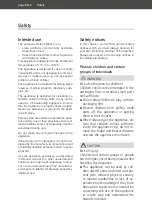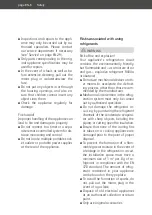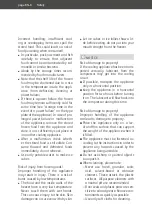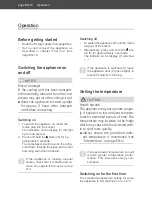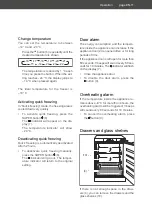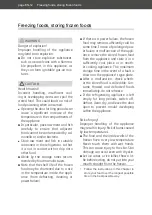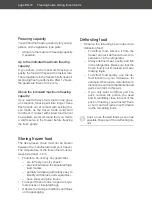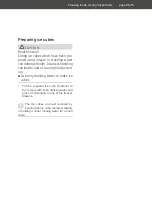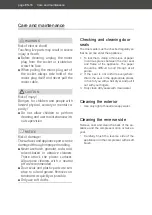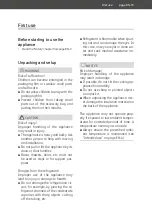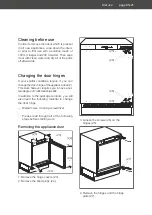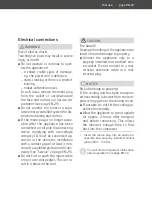
Safety
page EN-8
Incorrect handling, insufficient cool-
ing or overlapping items can spoil the
stored food. This could lead to a risk of
food poisoning when consumed!
■
In particular, pack raw meat and fish
carefully to ensure that adjacent
food cannot be contaminated by sal-
monella or similar bacteria.
■
Abide by the storage times recom-
mended by food manufacturers.
■
Note that the shelf life of the frozen
food may be shortened due to a rise
in the temperature inside the appli-
ance (from defrosting, cleaning or
power failure).
■
If there is a power failure, the frozen
food may remain sufficiently cold for
some time (see “storage time in the
event of a power failure” on the type
plate of the appliance). In case of pro-
longed power failure or malfunction
of the appliance, remove the stored
frozen food from the appliance and
store it in a sufficiently cool place or
in another cooling appliance.
■
After a malfunction, check wheth-
er the stored food is still edible. Con-
sume thawed and defrosted foods
immediately, do not refreeze.
■
Use only potable water to make ice
cubes.
Risk of injury from frozen goods!
Improper handling of the appliance
may result in injury. There is a risk of
burns caused by low temperatures.
■
The food and the inside walls of the
freezer have a very low temperature.
Never touch them with wet hands.
This can cause injury to the skin. Skin
damage can occur even with dry skin.
■
Let ice cubes or ice lollies thaw a lit-
tle before eating, do not put into your
mouth straight from the freezer.
NOTICE
Risk of damage to property!
If the cooling appliance has been trans-
ported vertically, lubricant from the
compressor may get into the cooling
circuit.
■
If possible, transport the appliance
only in a horizontal position.
■
Keep the appliance in a horizontal
position for two hours before turning
it on. The lubricant will flow back into
the compressor during this time.
Risk of damage to property!
Improper handling of the appliance
can lead to damage to property.
■
Place the appliance only on a lev-
el and firm surface that can support
the weight of the appliance when it
is filled.
■
The appliance must be fastened ac-
cording to the instructions in order to
prevent any hazards caused by the
appliance being unstable.
■
Do not use sharp or pointed objects
to unpack it.
■
When cleaning, please note:
–
Never use harsh, granular, soda,
acid, solvent-based or abrasive
cleaners. These attack the plastic
surfaces. All-purpose cleaners with
a neutral pH are recommended.
–
Door seals and plastic parts are sen-
sitive to oil and grease. Remove con-
taminants as quickly as possible.
–
Use only soft cloths for cleaning.











